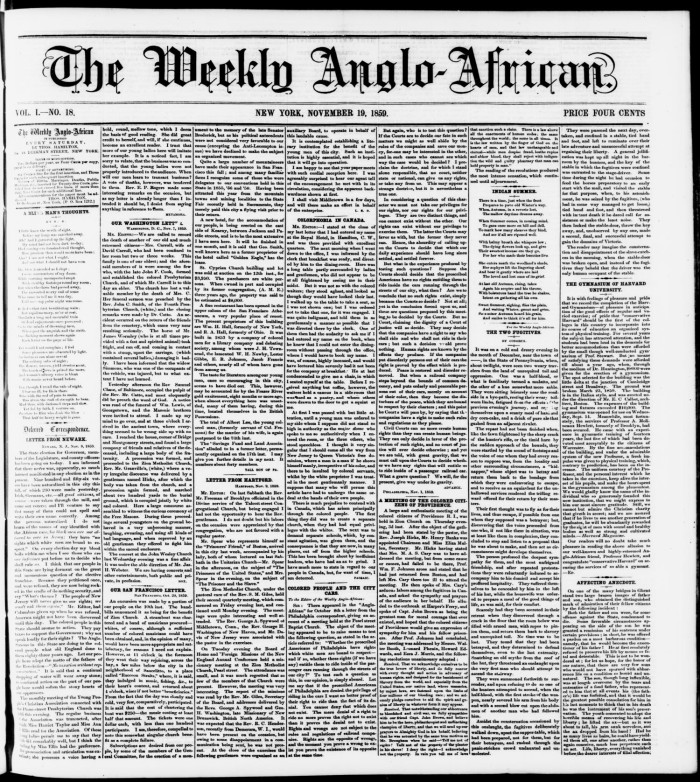

For many years before the war, African Americans never had a voice to be able to say how they felt. Many of them had no idea how to read or write because it was illegal for them to get an education. However, in the mid-early 1800s, the abolitionist movement began to form as an effort to end slavery. A lot came behind this movement, and it was the first milestone for African Americans to be free. As time went on and more African Americans were able to start learning how to read and write one tool that many of them used for their voices to be heard was journalism, and as time went on more and more papers about abolitionism, anti-slavery, and the importance of freedom arise. For example, a couple of those papers were The North Starr by Frederick Douglas, The Liberator by William Lloyd Garrison, and The Provincial Freeman by Mary Ann Shadd. Each one of these papers was like fresh air to those who still weren’t free because they knew that they had people that were fighting for them. As time went on and more African Americans were able to start learning how to read and write one tool that many of them used for their voices to be heard was journalism, and as time went on more and more papers about abolitionism, anti-slavery, and the importance of freedom arise.

Furthermore, in the 1820’s we see the start of the Black Press which started with the Freedom’s Journal in New York, and over time it became a combination of many other Black newspapers. Additionally, in the 1860s during the start of the Civil war, 40 Black newspapers were being published, and you can best believe that they took advantage of this war with their newspapers to shake some things up. They took this was as an opportunity to free the enslaved.
During this time there were two main papers that were closely following the war and they were, The Anglo-African and The Christian Recorder. Both papers were established in 1859 by editor Robert Hamilton and his brother Thomas and the decision that the Anglo- African would be the paper that would extensively report on the Civil War and the emancipation efforts. Both papers were successful in making more Black New Yorkers want to participate more in debates regarding the war and emancipation, and in the 1860s New York City and New York State became the center of free Black advocacy.
Black newspapers were not just a source of information for the Black community, but also a source of activism. As the war got closer, The Christian Recorder became a center of debate regarding Black males being accepted to fight with the Union Army.

Many believed that it was too risky, and they could risk their liberty because it was still possible, they could be captured and enslaved and the Supreme Court had made it very clear that no matter the circumstance, Blacks were not citizens. On the other hand, The Anglo-African thought it would be logical to use Black troops and promoted this in the papers, and over time more people sided with them.
Once Blacks became emancipated and congress passed the Conscription Act it was only a matter of time before they would be recruited to fight.

Of course, there were many whites who were against this, but Black New Yorkers doubled their advocacy for Black troops. Their dedication and advocacy for Black troops were successful and our troops were able to fight for us this wasn’t the end for us fighting and getting what we wanted, it was just the beginning.







No comments:
Post a Comment